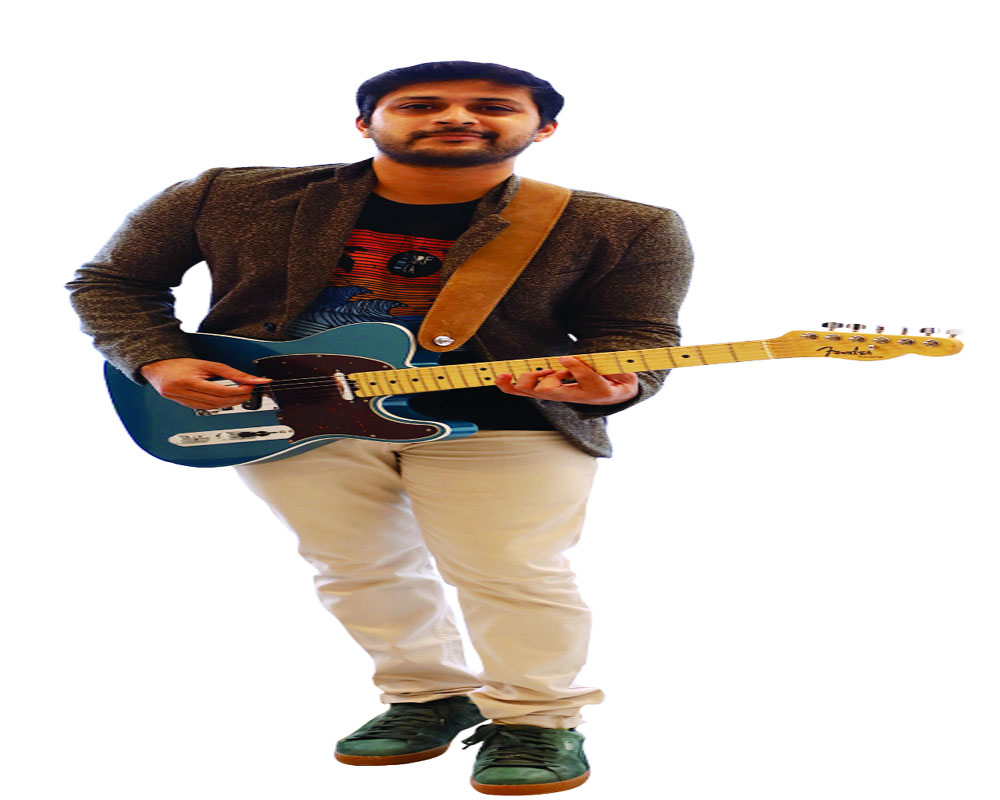Music composer-director KARAN KULKARNI, who has composed music for Shakuntala Devi and background score for Breathe: Into The Shadows, speaks with SHALINI SAKSENA about how he got interested in music and if there is a formula for hit music
What are you working on at present?
I am working on a lot of TV commercials right now. A lot of shoots are on the cards while not are on the shooting stage but they will get there.
What were the challenges that came with Breathe: Into The Shadows?
The main challenge about giving music for any web series is the more specific Breathe: Into The Shadows is the length of the music. This web series has 12 episodes of 45-50 minutes each. This means creating music for around five-six hours. Compared to a film, this is a lot of work, like doing three-four films. Also, given that this was a web series releasing for me on a big OTT platform we had to keep in mind how it will sound on TV or laptops.
Is giving a background score different from composing for a song?
When it comes to composing, it is the same since at the end of the day it is all about making music. There is really no difference here. One can say that songs garner a lot more attention, that is how it has been historically and people sing songs. Background score is music without singing and we are trying to follow the story and support it. In a song, we are just making a song.
In Hollywood, background music tends to stay with us and we identify the movie by it, why is it different in Bollywood?
It is the nature of things. People pay more attention to songs since there is a singer — there is a face, there is a voice, they identify with him and sing along. People enjoy it separately too. But when it comes to the score, it is identified and tied with the film. When you listen to it, you listen to it with the film. We do have a lot of musicians who are very talented and give great background scores but we don’t pay attention to it and they prefer to remain in the background. We pay more attention to films. So, it is a bit of all the above.
How did you get interested in music?
I was 15 when I started to play the guitar. This is probably how things start for many musicians. One thing led to another. I started to study it and got into music with a computer. I did a music production course in Australia. I came back and started getting work and here I am.
How was the experience of working on Shakuntala Devi and then Raat Akeli Hai?
On one hand, Raat Akeli Hai, it is dark and is a mystery-thriller. The sound and way you compose is different. Shakuntala Devi is brighter and more mainstream. Just the choices, sound, genres and characters you deal with here is slightly different. It is not a major thing to overcome. The industry we work in, requires us to work on all kinds of genres. I have had the opportunity to work on all kinds of music.
Is there a formula for hit music?
I don’t believe this. Upbeat dance music has been pushed a lot. But there are listeners for all kind of music. Music is so wide. It is not just happy and item numbers and sad. There is melancholy and contemplative. One can make songs on these. There is a reason why certain kinds of music works because they are being promoted since they understand this. They get played a lot. But if you play any kind of music a lot, there will be listeners. If one looks at the history of music, as long as it is good music, it will work.
What kind of music would you like to create?
It is to create something new. I don’t want to restrict myself to a genre. I want to challenge myself and be interesting.
Is it tough to experiment given there is so much competition?
Definitely. Everyone is connected to the Internet. They have heard everything that is coming out of Africa, the US and Japan. One knows all the sounds. It makes it tougher to be innovative. But every human being is unique and what he will create will be different. This will set you apart. Indian listeners have always evolved. There is a misconception. It is the people who are selling us the music who are not evolved.
What do you agree that working for digital space is better than working for the industry?
I totally agree with this 100 per cent. When you release something in theatre, there is someone involved and there is a lot of control on what they think is correct and what they think will work or not. All artists believe that the audience is ready if you sell it to them properly. People are watching Netflix, Amazon and stuff on the Internet. They are exposed to a lot of things globally. There is no need pleasing others. People have started to relax a bit since they are competing with global content.


























